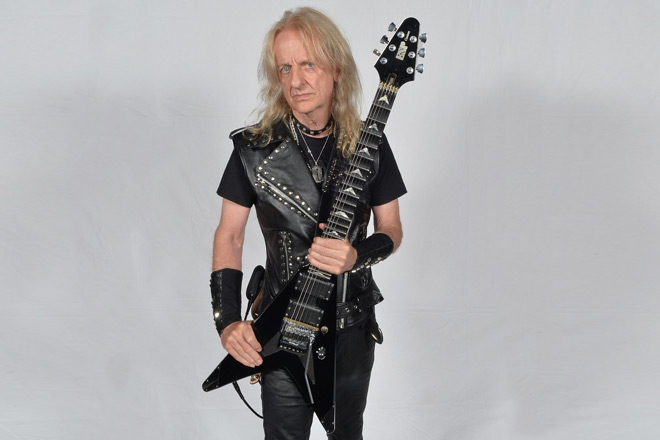
KK’s Priest, a band featuring the likes of former Judas Priest Vocalist Tim “Ripper” Owens, is a force that should be and will be reckoned with. Dishing out unfiltered, real Heavy Metal fury, the band premiered their debut album Sermons of the Sinner to rave reviews. Now eager to get out in front of live audiences on the road, are you ready for the assault of KK’s Priest? Excited about the new project, K.K. Downing recently sat down to talk all about it, his lengthy music career, plus a whole lot more.
Cryptic Rock – You have been involved in music for many decades and are one of the most legendary Heavy Metal guitarists of all time. Forging a path with Judas Priest, and being an extremely intricate part of the band, briefly tell us, how would you describe your journey in music to this point.
K.K. Downing – Definitely successful. I’m very lucky and fortunate to actually be born in 1951. Just as I was coming of age everything was starting to happen in the music scene. In the mid-1960s you had Hendrix and Cream, so many things were starting to happen. I was just a young teenager then and took to the music like a duck to water. I became a part of the whole evolution which is a fantastic privilege to see it evolve from Blues all the way to classic Heavy Metal. It’s been a fantastic career and hopefully, I can forge ahead and maybe we can break a few Metal boundaries!
Cryptic Rock – You certainly have accomplished a great deal. You have a new album out now with KK’s Priest, Sermons of the Sinner. This album is hard-hitting, fun, and engaging. What was it like for you to get back in the studio to write and record an album?
K.K. Downing – It was great. I would be lying if I said it wasn’t a challenge. The good news is when I sat down to start this thing it happened really quickly and easily for me. It was enjoyable to do and that is really the good news. I’m very fortunate because I really do feel as though there is a new vigor about the way I am at the moment. I know there was a considerable gap between myself being really prolific, but now that I am, it’s nice to see that these so often vague, difficult tasks seem to be quite easy for me. I think we’d all be very happy in life if we went to work and found our job ‘pleasurable’ and easy to do, as opposed to the opposite. (Laughs)
I have already made a start on the next record. I can only compare it to Sermons of the Sinner because it all sounds very justifiable and comparable. Call it a new lease on life, of whatever you want, but I’d like to think I’m drawing on experience from the past. However, I think it is a bit more than that… there is something else in the mix that I can’t quite explain.
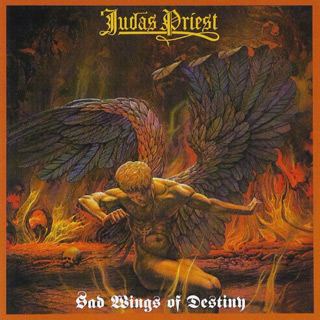
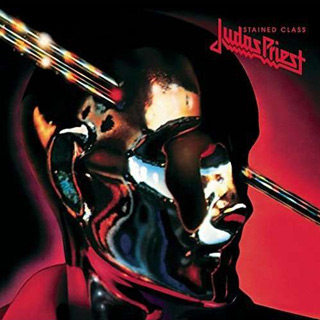
Cryptic Rock – It feels very energized and inspired. Let’s talk about the lineup you assembled for KK’s Priest, where you have a good mix of young and veteran talent. You have worked with Ripper Owens in the past with Judas Priest, so what was it like working with him and everyone else involved here?
K.K. Downing – It’s been great, the whole thing has been a pleasure, and came together really quickly. We had some pretty good fortune; I was able to get Ripper and Sean (Elg) over to put the drums down just before COVID hit in a big way the first time around. Having those definitive vocals and drums enabled me to have the luxury to being able to get on with the rest of the record; the guitars, and to embellish the songs the way I wanted to.
With the COVID thing, we spent so much time indoors sitting there with a guitar on our laps with all the technology and so many manuals to read, yet we couldn’t get on with it. At some point, we have to get out there, put the passports in the bag, get on a plane, and do some tours. That is what we are really looking forward to. When that time comes we are really going to be pumped and ready for it.
Cryptic Rock – Yes, that will be extremely exciting. You mentioned how there was a gap in your prolific career. During that time, were you still actively writing music?
K.K. Downing – Yes. There was a gap, but I was busy. I was producing for bands, recording, guesting on some albums, managing younger bands, and writing for younger bands. Toward the end I did a couple of shows, so I kept myself pretty busy. I also wrote my autobiography. I always stayed in touch with friends and a lot of media. People would ask me to write a little for their book or do things with their recordings, but now being flat out with KK’s Priest and the prospective touring, it’s going to be busy times.
Obviously the more successful we can be, the busier we are going to be. It’s all good news, I am very happy with the record. We can play every song live and I think they will all be great live songs. The promoter is picking up the phone and putting a tour together. We can be a special guest or we can do our own tours with some other bands.
Cryptic Rock – That will be something to look forward to. In the meantime, fans can dig into this record. What was the inspiration at this time to put KK’s Priest together?
K.K. Downing – I think it was probably more of an expectation. I did some songs with Ross The Boss at Bloodstock Festival in the UK, and that was great. Now people were starting to hear me and see me play live with the leather and studs again… I guess the expectations were something I didn’t really want to fend off. I checked with the Judas Priest camp to ask, “Are you sure the door is closed” and they said, “It’s permanently closed.” I always expected to step back into that role, but they kept saying no and kept going through their lawyer with legal channels to do things. Sadly they tried to stop me from doing KK’s Priest by sending legal letters, but we just ignored that and got on with it.
Here we are now. Now I’ve got a great band, I’m in love with the album, and I really hope the fans like everything about it. I know it’s been a bit contested, but we’re here now and here to stay. We will just keep forging ahead.
Cryptic Rock – All good to hear. You obviously were a big part of Judas Priest as mentioned, but you have also worked with other artists. Different artists have different ways of creating. Is it different working with KK’s Priest than Judas Priest creatively?
K.K. Downing – I think this project has been good. I wanted to do something in the way I wanted to do. It has been a long time, since the early ’70s, that I was able to do that. I knew all of the guys, and hopefully, I think they know and trust me. They know I am going to do things a certain way, to a certain standard, and they are happy to be a part of that. I am certainly glad they are a part of it. They are dedicated, and loyal, and I know I can rely on them. They are great at what they do.
We did some videos thrashing it out, and even though we didn’t talk about it, I know we all felt this was going to be great when we got out there to do it for real. We want to get out there. There is an energy to everything we do. The album itself, even the melodic parts, has an energy. That’s what it needed to be and it was great to be able to capture all the energy on this record.
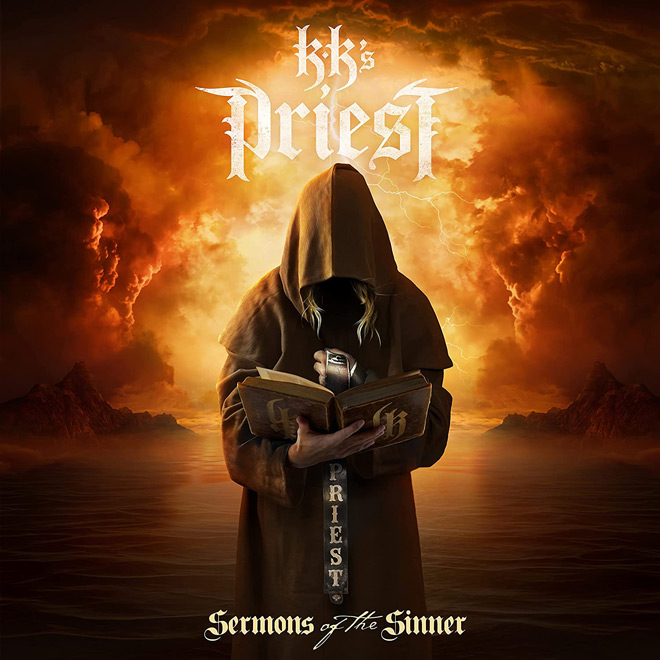
Cryptic Rock – You absolutely can feel it. Heavy Metal has changed a great deal through the years. There are many sub-genres at this point. Metal still has a place, but do you feel it is as inspired as it once was?
K.K. Downing – Something happened undeniably around the earlier part of the ’90s. First of all I must say there isn’t any style of Metal that I turn my back on. There is something in all the styles of Metal that is valid and that I like. Over the years we’ve played with so many bands that have played their particular style of Metal; Death, Speed, Industrial, or whatever. I’m not happy with it all, but I come from an era going back to the late ’60s. I’ve been, myself, a part of different types of Metal I suppose.
When we started to book the band in the ’60s, they didn’t know what we were playing, so they called us a Progressive Blues band, then they called us a Rock band in the ’70s, then a Hard Rock band, and then a Heavy Metal band. To me, it’s all valid. I have decided with KK’s Priest to really consolidate the ’60s, ’70s, and ’80s classic true Metal; I would like to see it sustain itself. I think there is so much more to give obviously, or you wouldn’t have bands like KK’s Priest, Saxon, Iron Maiden, Scorpions, U.D.O., and Judas Priest. We wouldn’t all still be doing this if there wasn’t still a lot of mileage in it.
I hope Sermons of the Sinner brings about the sense that, “Hey, it’s not all been said and done yet.” That’s a point to be made I think. Hopefully, we can sustain true and classic Metal for at least the rest of my years. I’d like to hear that and be a part of that. There are an awful lot of different aspects and styles of Metal. What the band Sabaton does, is still Metal. It is delivered with a new coating on it, but it works, and it’s good. You have bands like Slipknot, Ghost, and Dimmu Borgir, and it’s all good.
My advice to any young musicians who want to do something, try by all means but don’t feel as if you have to deliver your own style of Metal. There are so many fans who love so many different styles of Metal. You can fit it, but just do it your way, write good songs, and just present it in a slightly different way. I know it’s difficult to still do, but I still think it’s doable. The fans are there already. For example, there are a lot of bands that have been involved in the classic and true Metal who started the same time as me! The fans are still there.
Cryptic Rock – Yes, Metal fans are some of the most dedicated. It’s about coming from the heart and staying true to yourself. Speaking of production, Sermons of the Sinner is not overproduced. It sounds real and spontaneous. Was that important to you?
K.K. Downing – It was absolutely paramount. The drums needed to sound organic and the guitars not overly saturated. Those are two big things in production. I wanted to hear everything. You have to place everything right to make the mix happen together. You just have to have the headroom in there; the guitar solos cannot be too loud, otherwise, that will shrink the band. These are things you have learned throughout the decades.
It seems production has gone in a strange direction at the moment. You have overpowering drums that sound like cannons going off, bass low in the music, and the guitar solos are too loud. The song has to continue to rock. Even though you have a feature – a guitar solo or vocal part – you still have the main body of the song rocking out. This is the way I hear things. I really like the sound of Sermons of the Sinner, I think it sounds really good.
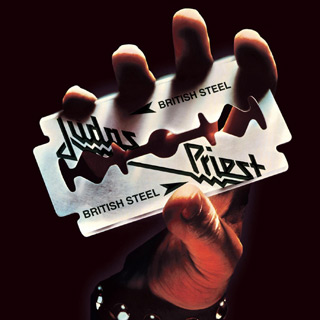
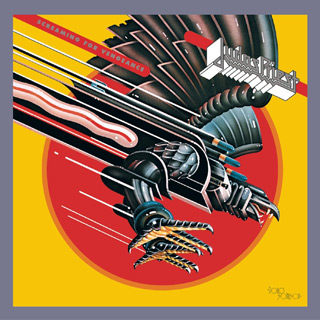
Cryptic Rock – It really does! Last question. You have had such a vast experience in music from life on the road to writing and recording. What would you say is the most important thing you have learned from it all?
K.K. Downing – I think one thing is for sure, the importance of not just what we do, but the importance of music itself. If there is anything that has connected the world and brought us together, I think music is so important. Music is so important to create that connection with everybody from different nations. I’ve had people I’ve met or written to me from Iron Curtain countries who weren’t allowed to listen to this music and in some countries they still aren’t! There is still a way to go, but we have to come good with it. Heavy Metal bands have to leave Iran! I was in Berlin when the wall came down and we were able to meet. One thing is for sure, is the importance of music.
Music was my salvation as a teenager; I could have ended up in some prison or a youth hospital. It saved me because it gave me something that was important and what I wanted to do with my life. Surely today with all the crazy things going on in the world, the one thing we have is our music. If there is this greater elixir of life, it is going to certainly be music for me.

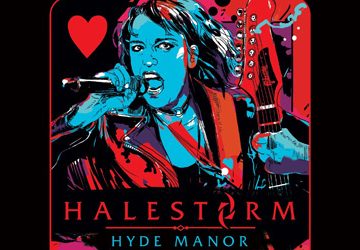



No comment